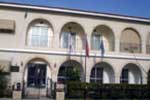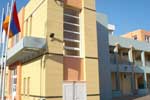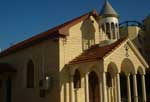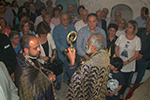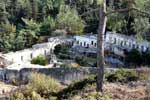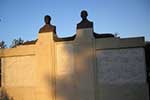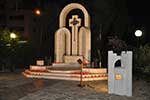Sassounian Column

HOW SHOULD THE DIASPORA REACT TO NEW TURKISH OVERTURES?
I have been informed by reliable sources that Turkey’s Foreign Minister Ahmet Davutoglu is continuing his efforts to initiate a personal ‘dialog’ with the Diaspora on Armenian-Turkish issues. Earlier this month, Davutoglu met with Armenian-Americans, as follow up to the meetings he held in Washington last March.
During their conversation in May, the Armenian interlocutors frankly advised the Turkish Foreign Minister that Ankara must address Armenian demands for genocide recognition and restitution before any ‘reconciliation’ could be achieved. The Turkish side reportedly indicated a willingness to discuss these thorny issues with Diasporan representatives.
Despite the seeming openness of Foreign Minister Davutoglu, Armenians have well-founded reasons to mistrust such overtures, given Turkey’s decades-long denial of the Armenian Genocide and its antagonistic policies toward the Diaspora, Armenia and Artsakh. Armenians also suspect that Turkish officials may exploit meetings with the Diaspora to score propaganda points with world public opinion.
Nonetheless, one wonders why the very busy Turkish Foreign Minister has invested so much of his precious time and effort to hold a series of private meetings with Armenians in recent weeks.
One possible explanation is that Turkish leaders are seriously concerned about the upcoming 100th anniversary of the Armenian Genocide. Ankara may have realized that unless it took proactive measures, it could not stem the tide of anti-Turkish publicity generated in 2015 by Armenian commemorative activities worldwide.
The second likely reason why the Turkish government may want to talk with Diaspora Armenians is its long-standing interest in joining the European Union. As the newly-elected French President Francois Hollande warned, unless Turkey recognizes the Armenian Genocide, France will reject its application for EU membership.
The third possible explanation for the Turkish overtures is that Prime Minister Rejeb Erdogan has a freer hand in tackling Armenian-Turkish issues at a time when his ruling party controls the Parliament and many of his hard-line military adversaries are under arrest.
Regardless of why Turkey is reaching out to the Diaspora at this time, Armenians have to make their decisions based solely on their own national interest, as to whether this is an opportune moment to test Turkey’s resolve to deal with the disastrous consequences of the Armenian Genocide.
However, before Diaspora’s leaders react to Davutoglu’s persistent efforts for ‘dialog,’ they should ask Turkish officials to clarify their true intentions by making some positive gestures, starting with the return of the Holy Cross Church on Akhtamar Island to the Armenian Patriarchate of Turkey. This historic church is currently designated as a museum belonging to the Turkish Ministry of Culture and Tourism. Furthermore, the Turkish government has to do much more than renovating a couple of churches for touristic purposes and returning a handful of properties to the Armenian community in Istanbul. There are thousands of confiscated churches and community properties throughout Turkey that must be returned to their rightful Armenian owners.
An initial test of Turkish sincerity in pursuing ‘reconciliation’ with Armenians would be putting an immediate halt to genocide denial, eliminating Article 301 of the Turkish Penal Code, and ending all adversarial behavior toward Armenia and Artsakh.
In view of the fact that the Turkish government will not willingly and unconditionally meet Armenian demands, and that all outstanding issues would have to be resolved someday through direct negotiations, Diasporan organizational leaders should prepare for such an eventuality. In this regard, it is important to review the records of the 1977 meeting in Zurich, Switzerland, between Turkish Foreign Minister Sabri Caglayangil and representatives of the three Armenian political parties.
Here are some preliminary thoughts to consider before any further meetings or discussions are held between Turkish leaders and Diaspora representatives:
- In the absence of an elected Diasporan representative body, major Armenian organizations, with assistance from experts in diplomacy and the art of negotiation, should start drafting a common strategy and a list of demands from Turkey. No Armenian organization or individual should be involved in separate negotiations with Turkey, to deny Ankara the opportunity to create disunity in the Diaspora.
- It is imperative that Diasporan representatives coordinate their negotiating positions with leaders in Armenia and Artsakh to assure a common stand vis-à-vis Turkey.
In normal circumstances, Turkish diplomats would have dealt with Armenian issues in direct negotiations with their counterparts in Armenia. However, given Azerbaijan’s obstruction of the Armenia-Turkey Protocols, pending the resolution of the Karabagh (Artsakh) conflict, Turkish leaders are left with no choice but to reach out to the Diaspora and address its legitimate demands.
By Harut Sassounian
Publisher, The California Courier






